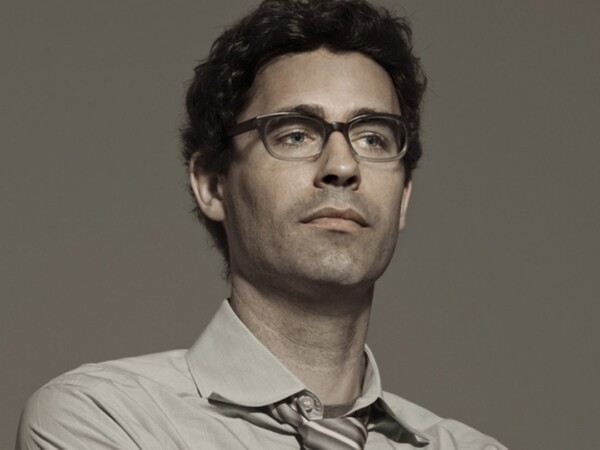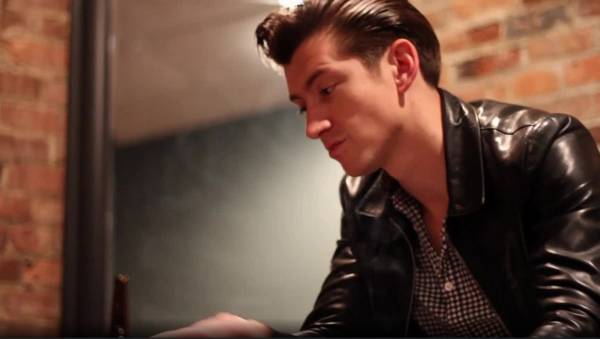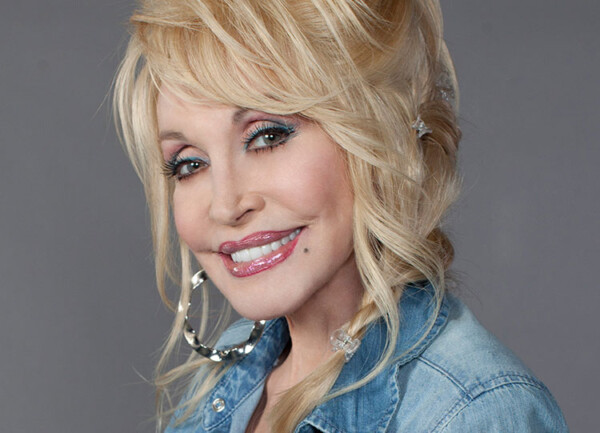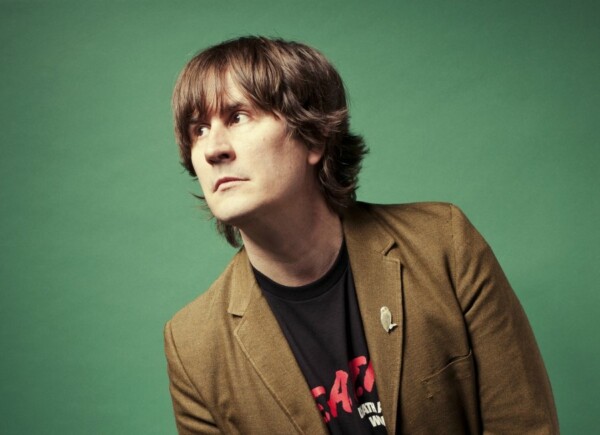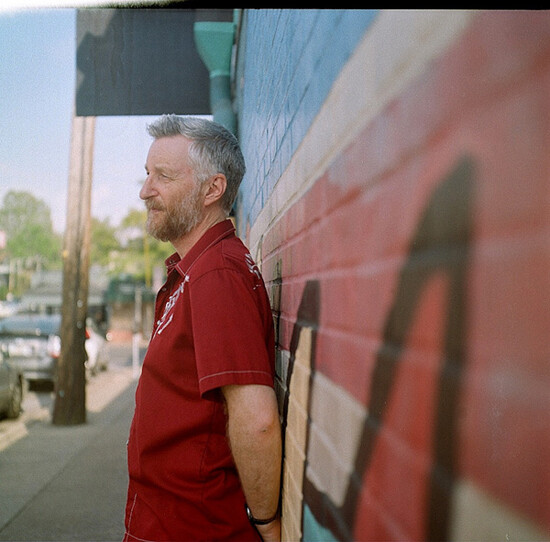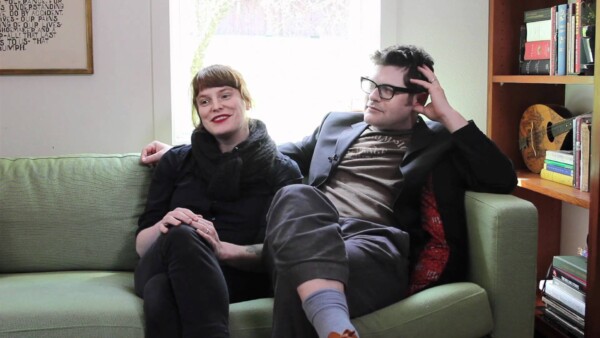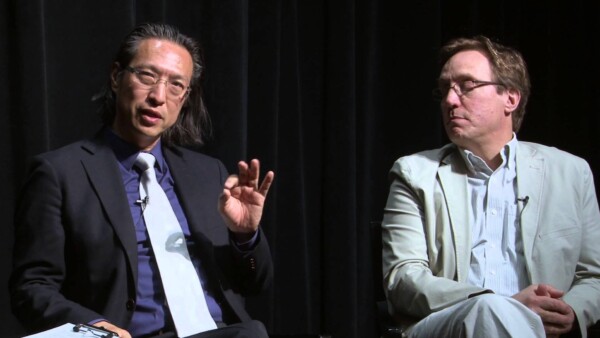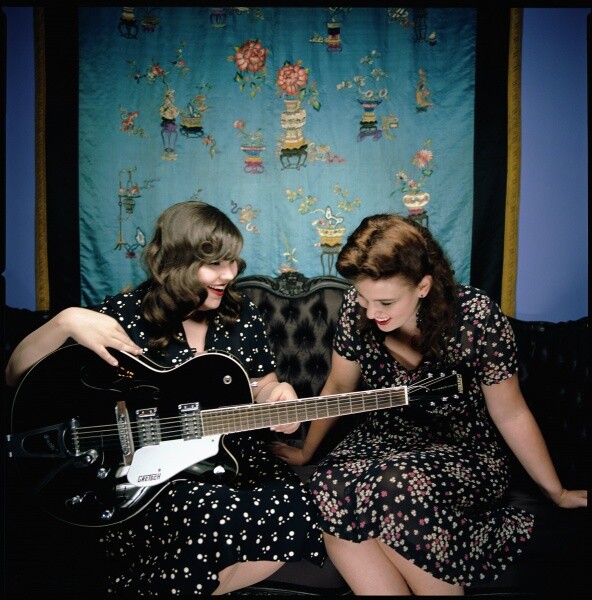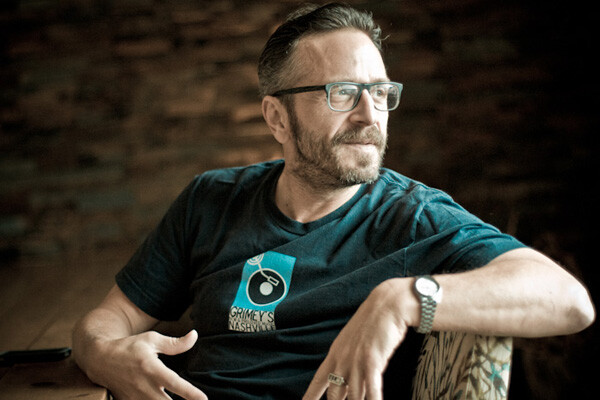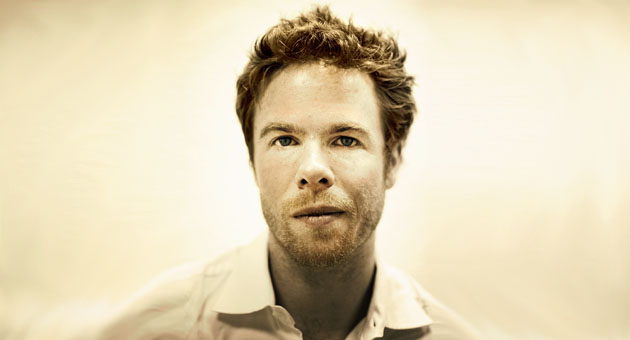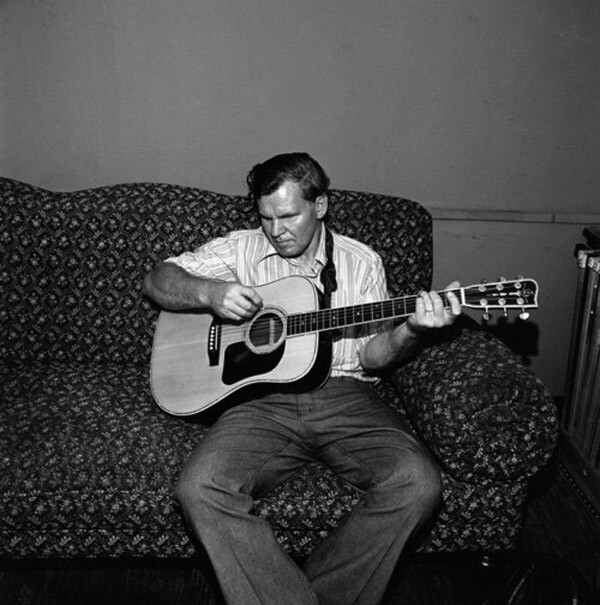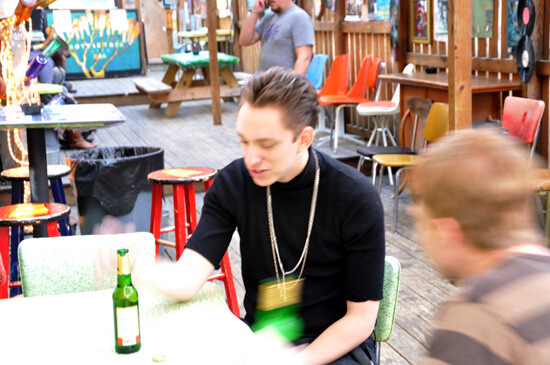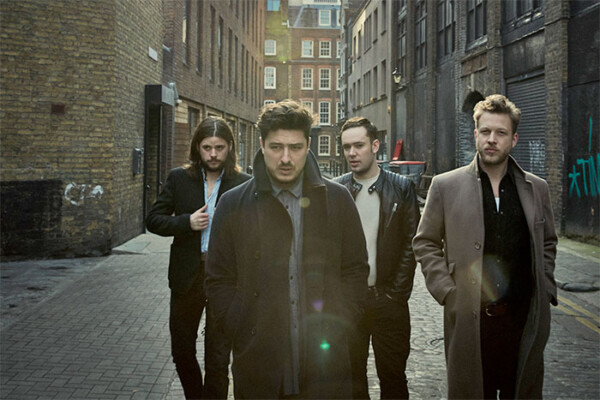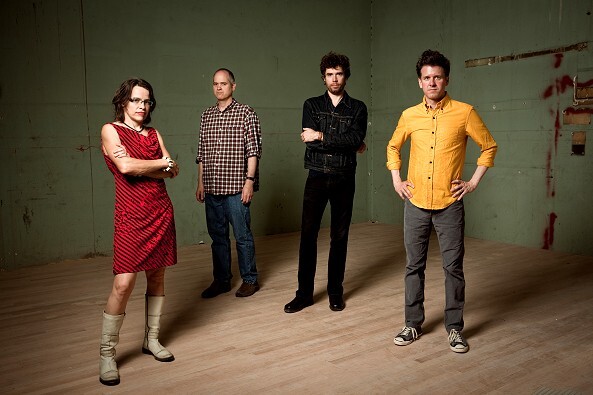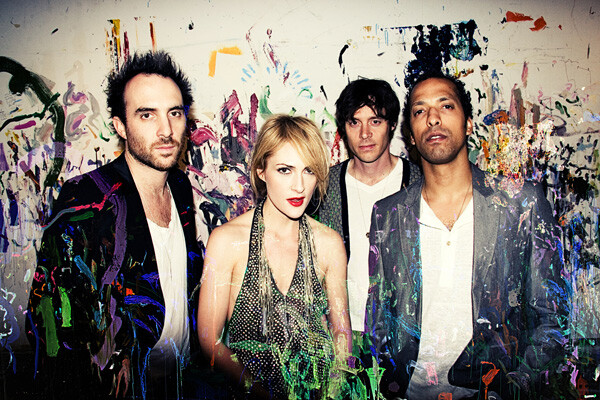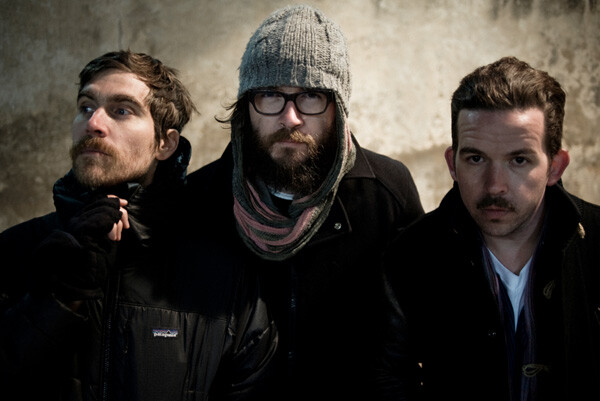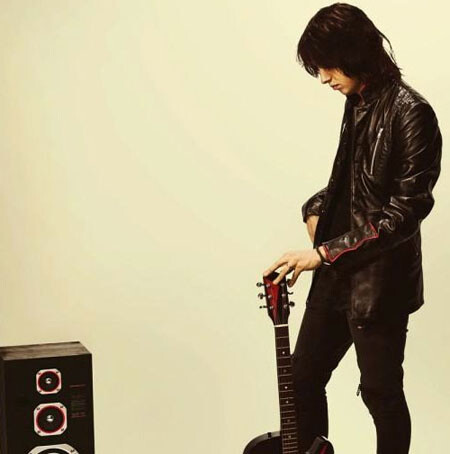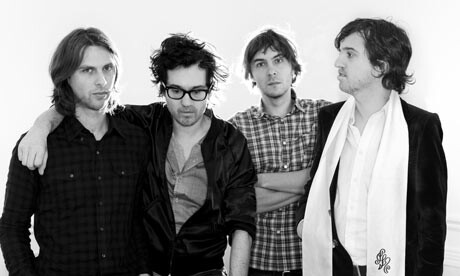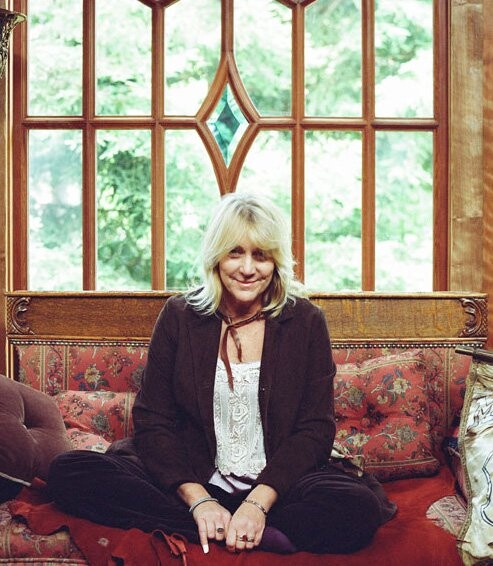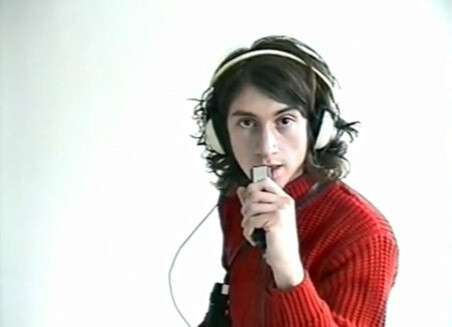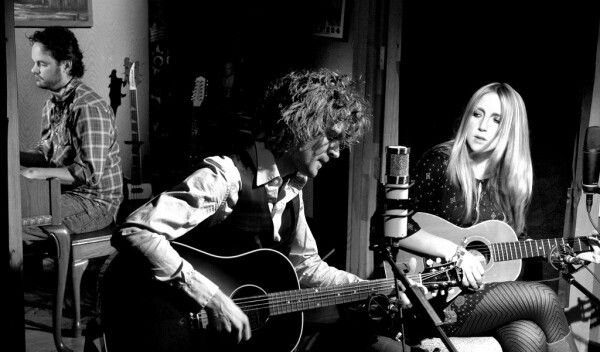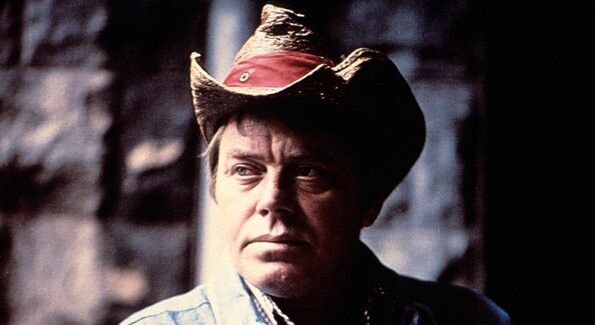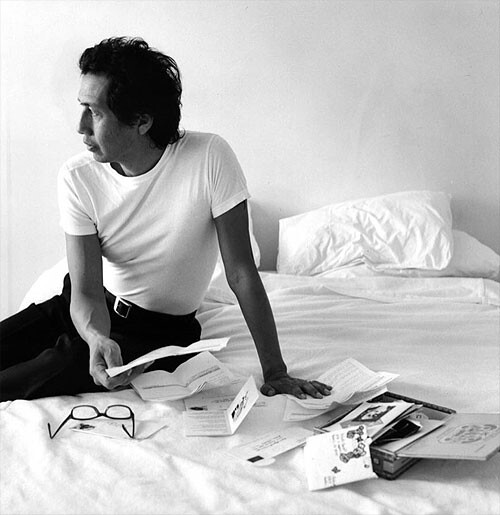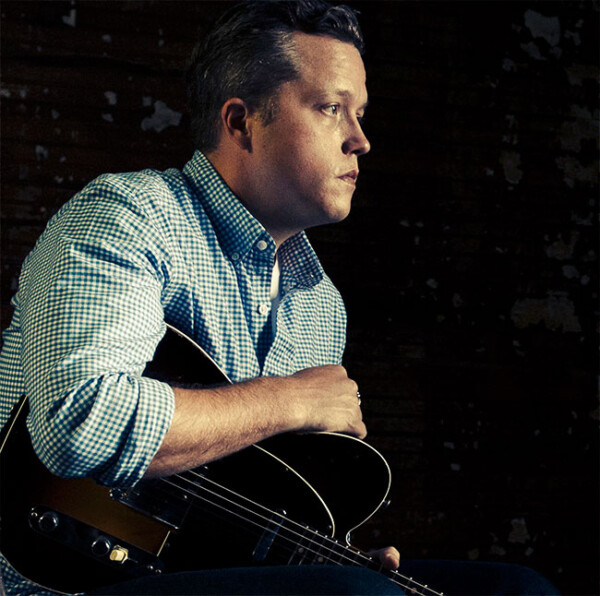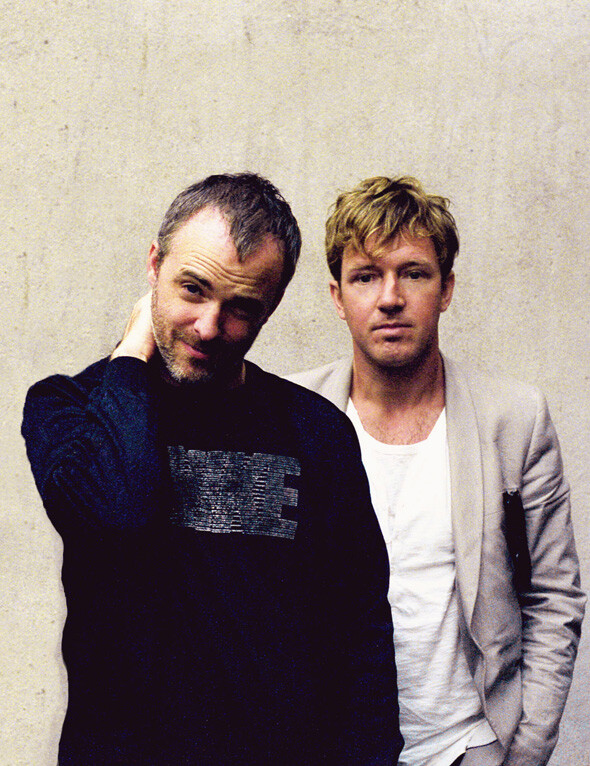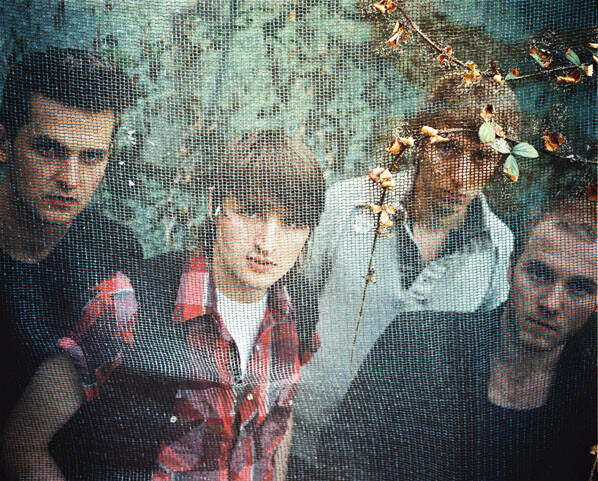
Episode originally published June 2, 2016 at
![]()
Show notes:

What’s your favorite drink?
Alex: A Gin and tonic, A Hendricks Gin and Tonic with a bit of cucumber
Jon: Yeah. I prefer Lemon.
Our friend and cocktail expert Karin Stanley from the Little branch in NY gave us a recipe for this week’s drink — a Hendricks Gin and Tonic.
Everything everything chose a gin and tonic made with Hendricks as their favorite cocktail. One of the simplest highballs, you make one by pouring 2 ounces of Hendricks over ice in a tumbler, and top off with tonic water. Garnish it with whatever you prefer, Hendricks suggests a cucumber slice, lots of people like a lime wedge, but I prefer a lemon slice. You can also try out one of the fancy tonic syrups you see these days, like Tom’Rs or Small Hands, if you want to intensify the quinine experience in your cocktail.
Winston Churchill claims that the gin and tonic has saved more Englishmens’ lives and minds than all the doctors in the empire. so if you’re drinking your daily G and T, you don’t need to worry about contracting malaria in a tropic climate. Bonus.
One main question we typically have for musicians — and we usually get definitive yea or nay answers — is are you able to write while you are on the road?
Jon: We do, yeah. The road’s actually pretty useful because we have all that spare time. And you also want to spend time away from everyone because it’s also so intense. And so getting your head phones on and making up new stuff is really cool. And also when you’re on tour with another band you find that one way or another you’re influenced by what they’re doing because you’re seeing a band every day.  And you’re seeing what works for them and .. you know, what they do that you don’t do. It get’s your mind moving. Like we’ve been on a couple of tours with Foals and I always end up writing Foal’s songs when I’m with them.  But actually it’s really good for me. Because they do stuff that we don’t do and I find it really useful.
The band has done a significant amount of touring between their first record  in 2010, and have made the transition in the UK from playing smaller rooms to playing very large venues and festivals. We wanted to ask if and how their songs had changed during that transition. What was the difference between playing the exact same song to a room of 500 people and an arena of ten thousand? Did that affect the way they thought of writing new songs or developing them in the studio when it came time to make a new record?
One quick remedial note, they are going to reference a couple names in here and throughout the interview. One is a song of theirs from their first album called “Photoshop Handsome.†It was the first single they were known for, and as they mention here gave them a reputation for being a “quirky†or “funny†band. The second name they mention here is “Arc†which was their second record from 2013.
Alex: Yeah, well before we got into doing that we were playing some of the songs for that record live while we were supporting bands like Snow Patrol and stuff like that in big arenas  which we’d never done before. And you sort of realize that you have to simplify a lot of the elements for them to sort of breathe… very loudly.  And some of the more intricate stuff that we were doing on the first album, you know like “My Keys†or even “Photoshop†just sounded like a complete mess in like ten thousand plus kind of environments. And so we kind of started writing a bit more like that in Arc having had that kind of experience.
But the new album was kind of more of a ‘anything goes’ kind of feeling.  And I think we were a bit worried after the second record that we had kind of written a lot of music that was very controlled, I would say? We kind of wanted to write more …
Alex: …Wilder
Jon: Because I think after the first record people thought we were kind of a ridiculous band. And we didn’t want to be one of those bands…
Jon: We wanted to be a serious band that people respected. You know having songs like “Photoshop [Handsome]†being your calling card, You know it’s kind of silly. And people didn’t really know the other side of us, the more serious side. And so the second album is probably a bit too serious. In retrospect. Although, “Cough, Coughâ€s on there which is probably more stupid than “Photoshop.â€
Alex: Yeah. The new album was, you know.. I mean you never know what is going to be the last album or whatever. And at the third album you’re quite lucky to have gotten that far. And so it’s got sort of the case of, ‘we’ll do whatever we want and not worry about what anyone thinks.’ And I think it’s the most sort of honest album that we have made in that respect.
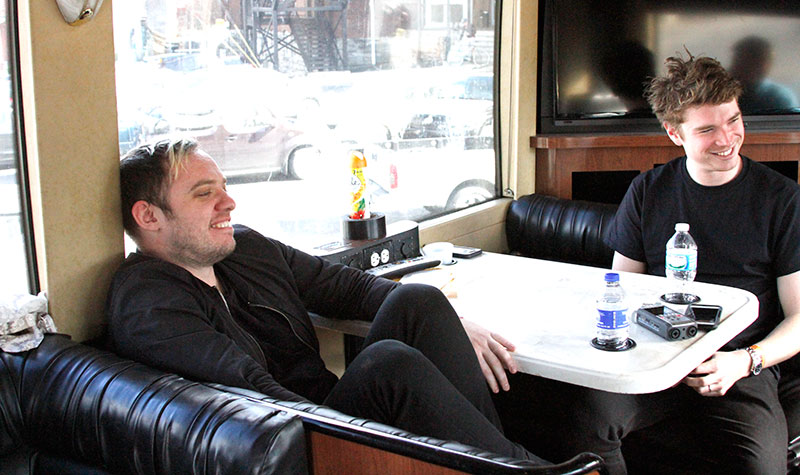
When they sat down to record their third and newest record “Get to Heaven†we wanted to know, had they set out with any particular vision in mind? After touring on their record, Arc, for a year, what kind of album did they want to make? Did they go in with some overarching vision, or did they just want to see what came out?
Jon: Yeah. We found ourselves actually..probably the most telling thing that kept happening was that we were searching through our B-sides to find peppy enough songs, you know, exciting enough songs to play even in short sets. Because we had all of these long, emotional tunes from Arc. And we were like if we want to play a party set we don’t have the songs. And so we were playing a B-side song like No Plan or something like that. And were like this isn’t good enough. We don’t want to be that band anymore. We don’t want to be the kind of weepy, band that makes people kind of put down their drinks and think about things. We want to be a dance band again. We want to be the weird, high energy band. And so we purposely sat down and discussed it before writing a note  for “Get to Heaven.†We were like, ‘alright, we’re not having any quiet songs. We’re not having any introspective moments. Nothing calm. Like its outlawed. We’re gonna make a ten or eleven track album. Short songs. Everything must be above a certain tempo. You know, all that sort of stuff.
Alex: Yeah. We wrote “Warm Healer†, I think that was really early. And we made the decision that that would be the lowest tempo moment on the record. And that’s still really fast (laughs). So..
Jon: Yeah. Nothing else was allowed. Like “No Reptiles†could have easily been a kind of drag. But then it’s got this pulse. And then it’s got the 16ths in it, you know and it’s actually dance music. But with this sort of slow song over the top. And that was always the intention that we we’re not going to go back to Arc.
Alex: And I don’t think we will go back either. We’re still kind of there.
Jon: yeah. I don’t feel like we need to. You can have all the impact of something like “The Peaks†in something like “No Reptiles†without losing that essential feel to it.
Alex: Or the audience (laughs).
Jon: Yeah. But it’s got the same stuff you had there but you’ve got the added energy.
If you listen to the lyrics of Everything Everything songs, there are wonderful juxtapositions between very mundane western things, like looking for a nice place to eat dinner, or thinking “what is my password for this website†with very traumatic settings. Things like bodies lying in a road while army tanks roll by or smashed bits of a skull landing in a baby’s crib. It all sounds very dark to read out loud, and could easily seem to be very forced, ironic words and images. But they are not. The band manages to place these things carefully in a the context of radio friendly pop songs. The vocal delivery actually comes off in such a way that if you are not paying attention, you would never notice a word of the lyrics. What is wonderful about this band is they are not reveling in the irony, or leaning on the fact that being ironic can often pass for being clever. They actually manage to lay all of these things together in the context of a song structure where all the elements, however disparate, fit together in a natural unity —
We wanted to ask Jon, how intentionally does he work towards these levels of steep contrast in his lyrics, and how does that balance out when you are trying to record an album full of unified, pop songs?
Jon: I think it’s always slightly tongue in cheek, the way present everything. Especially when it’s very positive sounding. Um, because I’m quite cynical, we are quite cynical musicians, and we’re very aware of Pop and of things being throw-away or light and to put something very heavy into that world is sort of purposely jarring and purposely kind of sneaky. So that some people will be kind of completely unaware of it. And I quite like that because I feel people are quite unaware of some of these heavier things in the world anyway. And I always feel as though.. I often talk about kind of ignoring bad things and people going through their lives, you know, la-ti-da. And I often sing about that. “My Keys Your Boyfriend†is basically about that, you know.  And “Get to Heaven†the song, I literally whistle in that song and then talk about bodies on the road. And it’s all got this kind of, ‘ ha ha, everything’s cool.’ Which is kind of what I feel about Western Society all of the time. Is that we kind of know there is bad stuff in the world and we kind of ignore it because everything is cool for us. But at the same time, you don’t have to.. you know there’s no big finger in the sky wagging saying ‘you shouldn’t be doing this.’ It’s like, “yeah, we are enjoying our lives And it isn’t that bad here.† And so it’s always got this feeling of like, you know, if you want to dwell on that shit, you can. Or you can just come and dance.. you know?â€
Skip: Well it’s powerful to acknowledge both. I think it’s a lot of fun. People thinking, you know, ‘ I can’t believe he said that in the middle of a song.â€
Jon: Yeah, yeah. I love feeling of you know like, ‘you can’t say that.†Quite a few times we’ve gotten things on to Radio 1 in Britain and probably for the first thing. Like stuff that people have neeeevvvvver said on their before in Pop songs. Even if it’s just stupid words like uh, “genuflecting in  penitent way†That’s definitely never been played on the radio..(laughs)  And it’s ‘nough as well….(laughter)
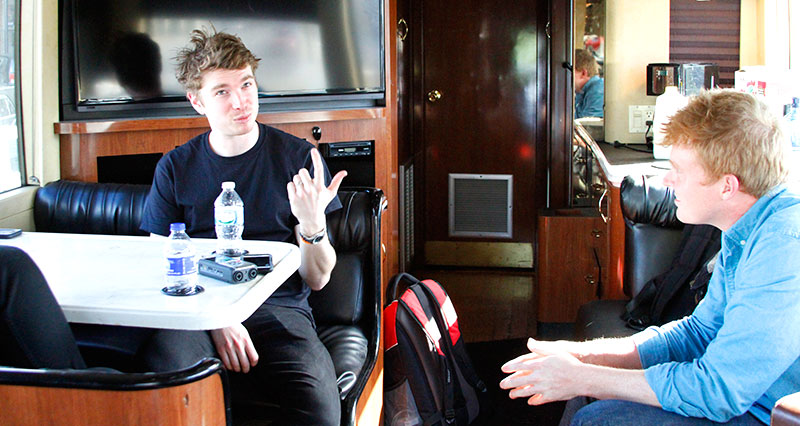
Timshel: We wanted to find out some basic details about what it was like to tuck in to make this latest record. How long did it take? What was the process like? How many songs were started and maybe even completed by one band member on a laptop before the rest of the band ever heard it ? How many songs were sorted out live in a rehearsal space?
Alex: We took a year.
Jon: We took too long.
Alex: So we had a rehearsal space in Manchester which we still have. And we just go up there, five days a week and we’d just be..
Jon: Hammering..
Alex: Hammering away.  But I think the main thing is just sort of, the way that we write is just sort of, Jon or I will sort of have something on a laptop that will be basically a finished thing or will be enough of a thing that the whole band should get together and we start knocking it around.  But sometimes it takes too long because if that bit doesn’t happen first, we can end up in a rut where it can be months and months knocking around and…
Jon: Pulling scraps together.
Alex: Yeah. Or getting addicted. You know there’s like this addiction, like Jeremy or Mike will be kind of addicted to a piece of music that is just not good enough..(laughs).. And then it’s like weeks and weeks of like, ‘guys, come on. We just shouldn’t be doing this. Let’s do something better.â€
Jon: yeah. Or we can get Demo-itis with something we’ve done that’s basically 100% before we can get it to the band. And then the guys are like, “alright, let’s play it.†And it’s kind of not quite as good when we play it together. It’s like the demo is kind of better. And that’ll  go on for months and months. And we have to involve everyone. And we can’t just submit a demo at the end of the day. Even though that’s probably better sometimes. It’s really difficult to make it all. Because when you write on a laptop you can essentially, you know, it’s magic. And you can have sixty bass players if you want.
Alex: And everyone’s bang in time. (laughs)
Skip: So for the months you’re writing, do you show up at 9 am in the morning? Do you break for lunch? I mean, what’s the day like?
  Jon : Actually 9 o’clock on our text messages .
Alex: But we get in about 11 o’clock. And we work till 6. And that’s it every day. Minus Friday. But we’re not going to do it that way this time, I think. It’s gonna be a lot quicker. We’ve written loads of stuff on this tour. I think Jon’s got two or three things.. And after that year I don’t think I could do it again like that.  It was pretty like…
Jon: It was a bit of a slog.
Alex: It’s a slog..and you kind of.. and the bands not doing much and you’re running out of money and  it starts to get bit heavy and I think it’s better to be just like, more prolific, you know, and rising all the time.
Skip: Several artists, Neil Young for example, have always generally held to the idea that the first take, or the first time you try and sing or play on a song, is always the best. Scores of musicians who have gone into to record a track for a Neil Young record will play along the first time thinking they are practicing, getting to know the song in the studio, and after that one pass at the song, Neil has said “That’s great, we’re done you can go home.â€
When these guys were spending several months making a record, with no immediate deadline in place, we wanted to know how much weight did “first takes†or “improvisation in the moment†count for them while recording?
Jon:  Well that was another thing that did happen with the 3rd record. Is that we did get into that mindset of “the first takeâ€, you know. If Alex had given me something he’d written with no vocal I would just..I would listen to it as the same time that I pressed “Record, you know? And so quite often it was the first thing that I thought of went down. And quite often that remained to this day.  And quite often it was vice versa I’d give him something I’d just recorded and say, “don’t think about it just do it..†And that was always the best thing…
Alex: Yeah, quite often. Like for “Regretâ€, like, the guitar and the middle eighth was done in our rehearsal room That was one take with Jon pressing go just saying, ‘do the first thing that comes to your head..†(laughs) And it was the stupidest thing that came to my head. (laughs).
Jon: When we moved out of that room at the end of the year, there were microphones and the amp placing the wall and it had slipped completely down the wall onto the floor and we were like, ‘ that’s how he got that sweet sound.†(laughing)  A million dollar sound you know. (laughter)
Skip: (laughing) yeah, of all the crazy things you do,to get sound we just forgot to look at the mic. (laughter)
Jon: Yeah! Its even on the album. Â
Timshel: But seriously there is magic in that initial response though.
Jon: Yeah, right.
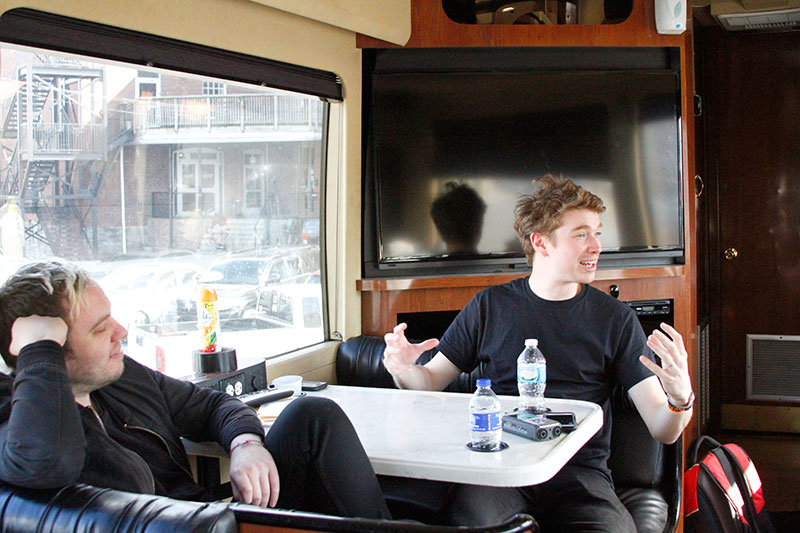
Timshel: You might have had so much of a song that you created on the computer, and then you hear it, and you react to it.. because the temptation is to think about it too much.
Jon: Yeah, you really do. Even lyrics, you know. I mean it’s the first  thing I sang. And then you come to the studio- the big expensive studio months later when the songs solidified, you know, all these months later, and I’ll sing the new line that I’ve been working and working on, and the guys are like, “what happened to that original lyric?†And I’ll be like, “ that was just bollocks I wrote on the day..†And they’re like, “ That was much better than this..†(laughter)
Timshel It’s so humbling..(laughing)
Jon: Yeah, and I have to just go with it, you know? Why don’t you  tell  me what its about then? (laughs)
Skip: Heres a question for each of you individually but when was the first time that each of you felt electrified by a Pop song when you were a kid?
Alex: I think when I finally sort of cracked, Radiohead was the first time I sort of found myself kind of loving bands. With OK Computer I think. And I was the youngest of four. And All my older brothers were sort of giving me things. And I got into Nirvana. And it was always American bands for me. I mean Nirvana, Smashing Pumpkins, and then maybe Blur. Never Oasis. I hated Oasis. I hated them. But the only first time that I ever felt that I got it was Radiohead. I think it was because we sort of grew up with classical music. And so for me I sort of understood that sort of injection. For me it was a bit deeper than your normal Pop or whatever.
Jon:  I’ve got an older brother. And we’ve got some family in Canada. And we went over there. And there was an even older guy there. And My brother got to hanging with him and he gave him a lot of music. And so we came back to England with all these tapes. And um it was like Smashing Pumpkins, and Nirvana, and Rage Against the Machine and all of these things that I had never heard and I was like ten I think. He used to just play them in the bunk above me. And I was like, “what’s this?†Why does that guys sing in such a funny way?†and “ooh he said a swear!†and stuff and it was just amazing. I mean I had nothing like that. I mean we had just Beatles and Simon and Garfunkel records. And whatever was on the radio- which was just crap. And I was like, “this, this is the shit.â€
And my brother played the bass. And I started to play pretty much straight away.
Another question we wanted to ask was do they ever find themselves inspired to make music by encountering artwork that was visual in nature. Films or paintings for example.
Alex: Yeah, I think if you are incredibly moved by something, it doesn;t matter what it is, It does help you to sit down and do something. I wouldn;’t say it would be particularly film or anything. I mean it could be reading an article or seeing a painting or…
Skip: Yeah paintings especially. I think there is more room for your imagination to move. I think there is more room for your imagination to move in silence.
Alex: I think it’s kind of weird. I mean, the other day we were in Minneapolis and we were trying to write. And Jon was doing some singing, and I was trying to write and I started it and I was hungry and I was  like, this is just shit (laughs)… and so I left. To get lunch . And I just thought, you know, “ I’ve just got nothing in me. I just don’t think I could write anything today.†And then once I’d had some food and I walked around and came back and sat down and now I think I’ve written something like really good. So.. it’s a very strange sort of feeling being creative, isn’t it? It’s sort of like..You know when it’s not there? More than you know when it’s happening, you know what I mean? (laughs)
Jon: Yeah, you can’t think, “today I’m gonna write something amazing.†You just, you can’t ever control…
Alex: Yeah. The general rule is that I find is that I’ve just got to say that I’m going to do it and even if I feel that I don’t want to do it, As soon as I get started than there is sort of initial kind of wall but then your brain just starts thinking the way that ir should do about that kind of thing…
Timshel:  Right. Even though you guys don’t want to do what you did last year, do you feel like that year, doing it every single day, kind of honed a muscle.
Jon: Yeah. I think we were definitely better at the end of it than we were at the start.
Alex: Yeah. I think the things was the problem was that we didn;t write enough during Arc to then, to suddenly get the gears going again takes a long time? Whereas, since Get to Heaven, Ive continued writing the whole time. You know, its like a muscle that you must  flex.. to keep active. Otherwise you just forget how to. Especially when you are on tour. And you just sort of fall into that trap that sort of muscle memory. I mean the guitar, you don’t even see it, you don’t even see whats going on. Its like, that fret.. anything…
Skip: If they are sitting down and trying to write or finish a song on a wednesday morning, do they have any habits as writers that have developed over the years? Anything, consciocus or not that they end up doing alongside of writing.
Alex: I like to get out in the morning and go for a walk That gets my brain active And then I’ll come back and have coffee and ….
Jon: I like to sort of put on a record that you really like, or something that you don’t..Dont’ think about anything much and then…innevitably the first few things that you write will be what you just heard.  But that fourth thing…
Alex: Yeah, and then it starts to just divide from it..
Jon: That fourth thing will be something sweet, that soesnt sound anything like it but ti came from that.
Skip: I love that idea of putting on a record that you don’t like.
Jon: I spend a lot of time listening to music that I don’t like. It’s weird.  I spend more time listening to music that I don’t like actually. I don’t know why. I kind of feel intimidated by really good music sometimes. When I was younger I used to feel jealous of really good music. To the point where I wouldn’t listen to it. I’d be like, “no, it’s too good to listen to I need to do better than that before I can listen to it.†And I guess that might be why I started a band, somewhere deep down. It was because I wanted to beat it. Because it was really good. Somehow it has sort of carried on into the fact that I only listen to my favorite music very little. Kind of because I don’t want to spoil it. And I don’t want to feel that I can never get there as well.
That doesn’t mean that I listen to shit music because I’m like, “ha ha. I’m better than you.† I find taste such a odd thing and to try and work out why you don’t think something is good is quite interesting.  Like “why have I put this thing on a pedestal and this isn’t.†It changes throughout life all the time. Like some of the things we would put into songs now is deliberately bad taste, you know, like slap bass or, you know, phaser or something like that. Because it kind of amuses us. And it breaks our own sort of inner rules that loads of other people won’t have.  You know, Flea doesn’t give a fuck about slap bass. (laughs) Do you think it’s bad or good, you know? But we think it’s awful.  And our bass player hates  it. So we end up putting it in loads of our demos (laughing). Just to keep ourselves..you know.. challenging our preconceptions about these stupid rules we have that don’t need to exist really.
Skip: One of my favorite writers is a southern guy Walker Percy and he’d say that he never really wanted to write anything unless he’d written something that he disagreed with. And so I love the idea that you would write in response to something like that.. the contrariness of that engagement, you know?
Jon: Yeah, even with artists of any kind you’ve got to have reason to do it. And it’s either you really love someone, basically, or you really hate someone. Thats kind what motivates anything life, isn’t really?  You do stuff for your family or you do stuff to make your own life better or you do something because you know something’s wrong. And I find that writing about loe and stuff just a little but unnecessary because I feel like the people that I love in my life kind of know I love them and there is a lot of material out there about love and I don’t have much to add to it. But I have a lot of things I dislike about the world. And that inspires me to write a lot of the time. I dislike a lot of things about other people’s art and that inspires me to rebel against it with my own art, I guess.
There are a million great stories about musicians picking up a particular instrument, whether it was expensive or cheap or maybe it had some great history – maybe it was owned by Hank Williams or  maybe it was found it a dumpster, but when they picked it up and hit a chord or two, they were immediately struck with a song, and wrote the whole thing on the spot. We wanted to ask if they had ever had a similar experience.
Alex: Well yeah, it’s an interesting thing actually because on the last record there’s a B-side called “Only As Good as my God Is” And that tune was written because I went into the attic and I was buying a new flat with my wife and we needed some money so I needed to sell some gear and so I’ve got this old Omnichord Om 27 out of the attic and I plugged it in and just sort of went.. wrote a tune. (laughs) And I was like, “can’t sell you.†(laughing)â€Back to the attic.â€
Following on that same point, we wanted to know in their experience, say with guitars for example, how important it was to them that they have a good quality instrument to play. How much more could anybody expect from some twenty thousand dollar guitar on the wall at Gruhn’s in Nashville, than from a moldy Yamaha acoustic guitar in some dorm room?
Alex: Yeah. I mean i think it’s instrument to instrument, isn’t it? Like we went into the guitar store down the road and for me it’s just necks. So like I’ll go up to the necks and just go, “no. nope. no. yes.†and then I’ll play it and it’s like, “well, is it really loud?†(laughs) You know like if it’s acoustic and it’s really loud, then it’s a good one. It’s got like the wood’s dried out and you’re like, “yeah, that’s a fucking great guitar.†And then you know that yeah, you could write songs easily on that.But if it’s got like a baseball bat and it’s really quiet… I think that the naught-point-naught-two-percent that it helps to have a better instrument — Is actually quite a lot. You do notice that I think.
Skip: When they were first starting to write songs, who were the lyricists that they were really enjoying. Who were writers that made them stop and consider the words to the songs and consider what words they were writing?
Jon: Obviously Radiohead. But I like a lot of fun music growing up as well. Like Bonzo Dogs.
Alex: A lot of rhythmic bass stuff..
Jon: Yeah. I liked a lot of rappers and R &B. People like R Kelly and Craig David, who was a guy in Britain who is sort of in that world. I really liked the playfulness of it and when you have a lot of lyrics like that that are fast you can kind of afford to throw some of it away to humor or to things that don’t matter as much. When you’ve only got two lines in a song they have to really mean something. For me. And when you’ve got a lot you can be a bit more playful and you can use a lot more of your imagination.
Alex: You got quite into Nick Cave, didn’t you?
Jon: Yeah. I mean I like Kanye a lot just because it’s just the confidence behind it. I mean even if he’s talking about ordering fish filet.

